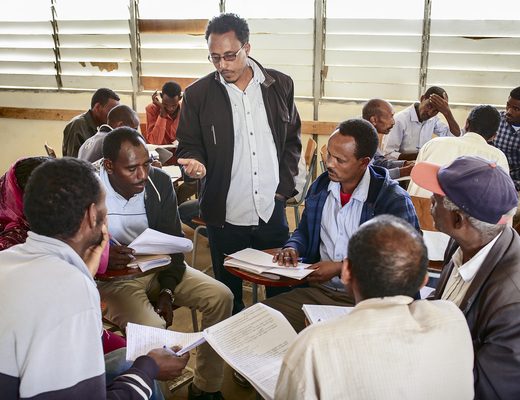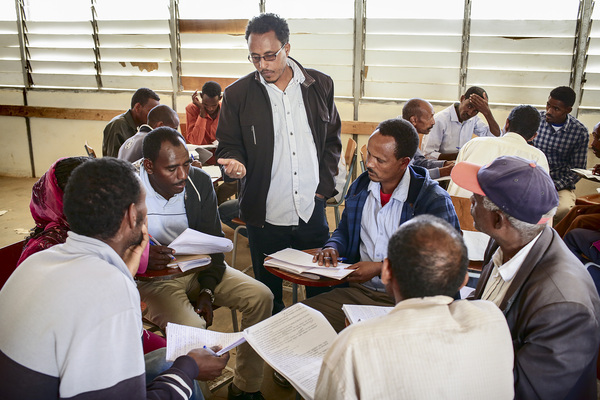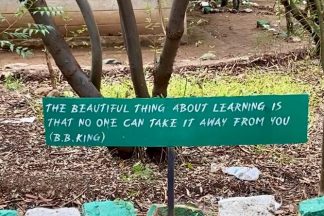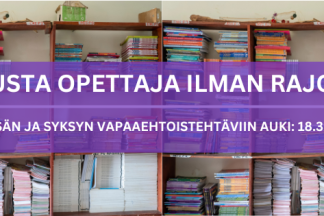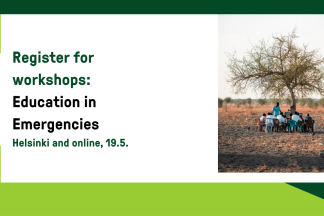In October, Finn Church Aid (FCA) organized a week-long staff exchange to Finland for two teacher educators from Asmara Community College of Education (ACCE). This was done in cooperation with the University of Jyväskylä’s Eritrean Learning For All (ELFA) project, which sponsored three teacher educators from the Eritrean Institute of Technology’s College of Education (CoE).
Learning about the Finnish Education System
This cooperation resulted in a staff exchange for five participants, so that preparations in Asmara, learning activities in Finland and follow-up events in Asmara could be organized more thoroughly. The activities are a good example of how different Finnish actors can cooperate in Eritrea to synchronize their efforts in the education sector.
The one-week-visit included visits to the Finnish National Board of Education, schools, educational organizations and the FCA office in Helsinki. The second half of the visit culminated in two seminars at the University of Jyväskylä i.e. a seminar called Education Africa and the seminar on Sustainable Development Goal 4.
Each of the Eritrean teacher-educators was chosen, because of the research they had conducted on Eritrean education. The Education Africa seminar gave them a forum in which to present their findings as well as network with other researchers.
The participants of the staff exchange kept learning diaries and a report was put together by FCA based on the diaries and a de-briefing held with all five participants after their return to Asmara.
The presence of Teachers without Borders (TWB) volunteers at ACCE has made it possible to have many informal, collegial discussions in addition to formal preparations and follow-up events. While those more official briefings are vital, it is also clear that by having informal discussions with colleagues, the learning process of the staff exchange extends far beyond seven days and just a few staff members.
From What to How
FCA’s professional development activities are visible at both teacher training institutes in the form of pedagogical forums and pedagogical cafes respectively. These platforms were used after the staff exchange to disseminate information and share reflections on the lessons learned. At ACCE, the pedagogical forum included presentations on the trip and the Finnish education system, as well as the key lessons learned through the experience.
Seeing a very different learning culture and education system cannot be summarized easily but the participants brought up some of the main characteristics of the Finnish system as they observed them. Three levels of support are offered for students according to their needs in a system geared towards life-long learning. Education is continuously developed, for example by using the curriculum as a tool for pedagogical innovation. The participants were struck by the move from “what to learn to how to learn.”
One of the participants pointed out in his presentation that he was struck by the attitude of Finns working in education. While achievements are recognized, this is paired with identifying areas for further development. When everyone agrees that the development of quality education is a process, it becomes easier to discuss critically and openly in an atmosphere of mutual learning. A key lesson that arose through the staff exchange was the idea of emphasizing human resources over material resources, for example by focusing on quality teachers and strong cooperation between parents and teachers.
Mutual Learning
The discussion amongst ACCE faculty that followed the presentations was a lively one. For me, it was another opportunity to re-emphasize how the TWB network is built on mutual learning. The professional discussions we have are now more concrete as we have Finnish examples to discuss in addition to Eritrean ones. Some rather vague ideas that might seem very alien to my local colleagues take shape as some of them have observed some Finnish classrooms firsthand.
The Eritrean teacher-educators visited the primary school, where I used to work and it made me reflect on our practices there and especially on the things that we do well. I felt proud of a working community that is also a learning community. In a school where the principal trusts autonomous teachers, the teachers educate motivated and responsible students.
It is significant that development cooperation in education involves travel in both directions. It was amazing to hear how exposure to a new education system affected the views of a colleague, who had never previously set foot outside of Eritrea. It was almost equally amazing to realize how much I learned through our discussions despite the fact that during that staff exchange, I was still here in Asmara. The potential for mutual learning should be the driver of development cooperation in general and educational projects in particular.

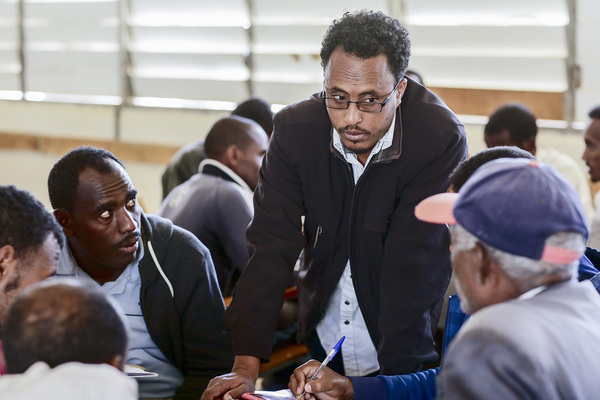
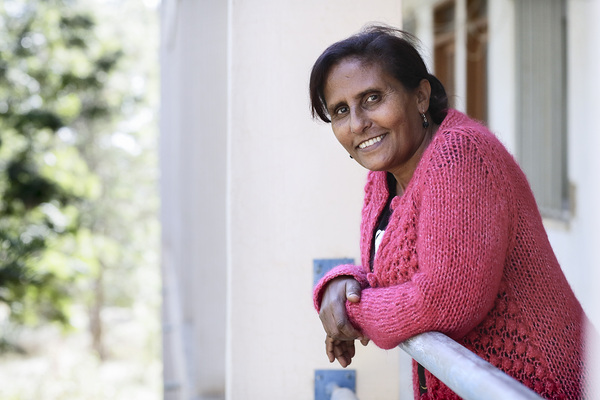
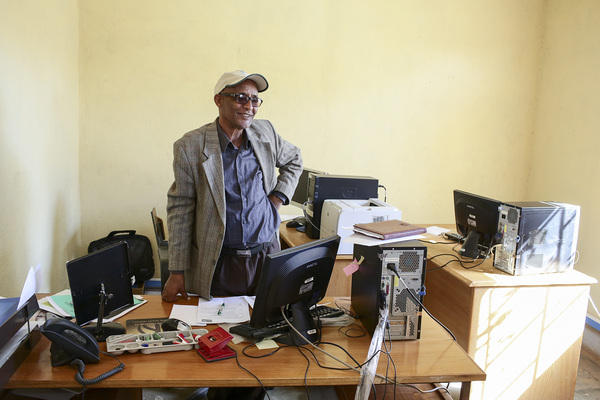
Photos: Jukka Gröndahl

